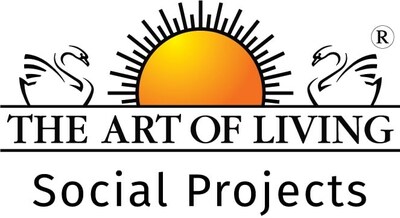
BENGALURU, India, Jan. 30, 2023 /PRNewswire/ — Water is vital to the existence of all beings. However, 54% of India's population has inadequate water supply to meet their basic needs. To even ignore the essence that it provides to human life is malfeasance. Unchecked rapid economic development has negatively impacted mother nature. The focus has been on economic growth but need more on human development, aligned with social and environmental goals as well. This development has to be subsequent in reaping economic benefits while maintaining the environment's resources.
Exploited natural resources, like rivers, water bodies, soil etc., pay for the cost of this rapid development.
The JalTara Jalna Maharashtra Project
The Central Ground Water Board (CGWB) conducted meaningful studies to analyse and interpret the trend levels of water consumption and availability in the wells across India. The results within Maharashtra concluded that 75% of the wells in the pre-monsoon period had shown a descending trend of 0.1 meters per year. Similar results were demonstrated in approximately 55% of the wells in the post-monsoon period. This projection, validated the reasons why a comprehensive stable groundwater recharge plan was needed, and thus JalTara project was implemented in Jalna.
The main focus is the most water-starved regions of Maharashtra during 2021 and 2022. Projected benefits were transformed into reality when simple, scalable, yet massively impactful 4×4 feet wide and 6 feet deep groundwater recharge pits were dug & filled with rocks, pebbles, and sand, in approximately 19,000 acres in the region. The project validated the hypothesis of 'one recharge pit per acre' in bringing large increases in village water capacity, farmer incomes and prevention of crop spoilage due to waterlogged fields.
Process followed as a part of JalTara
A three-pronged community approach starting with JalTara sevaks training, followed by farmer's mobilization & finally digging/filling the pit has been designed and being implemented for JalTara groundwater conservation projects at a village level. JalTara Team Experts spearheading the process are dexterously providing solutions in a scientific manner that prioritize large area treatments to restore water systems in targeted areas – by digging approximately 500 pits per village. The focus resided on learning how to scale to 1,00,000 villages within 5 years to solve the immediate water needs of rural communities by ensuring access to sustainable sources of groundwater. With the help of a developed scalable framework, the project now aims to reduce any probable drought impact by circulating the groundwater from its excessive presence to where it is needed.
Positive Outreach of JalTara in Jalna
After a successful project implementation, under the guidance of Art of Living, more than 30.3 crore litres of groundwater were added per village. The effectiveness of this scientific approach was visible even to untrained eyes. Still, the impact was also significant for the individual farmers and villagers to start taking care of their lands with availability of water for multiple growing seasons.
As a result of heavy rains, plots that were earlier flooded for 15-20 days a month were now fully drained of water within two days, saving the crops from getting spoiled. As an additional recovery of crop sabotages, farmers started to sow more crops that boosted land productivity. A jump of 120% in the farmer's income with a subsequent 42% rise in the crop yield was witnessed. An increase of 14 feet was observed in the water levels, with a 100% reduction in crop spoilage due to water logging.
Several water projects were implemented in the wake of severe drought conditions in Maharashtra and neighbouring regions. However, JalTara reaped the most effective results in the simple, scalable approach and powerful scientific techniques merged with the relentless hard work of volunteers at Art of Living led the project to fulfil the initial motive, and still strive to eliminate the water dilemma from Indian land.
(Disclaimer: The above press release comes to you under an arrangement with PRNewswire India and this publication takes no editorial responsibility for the same)
